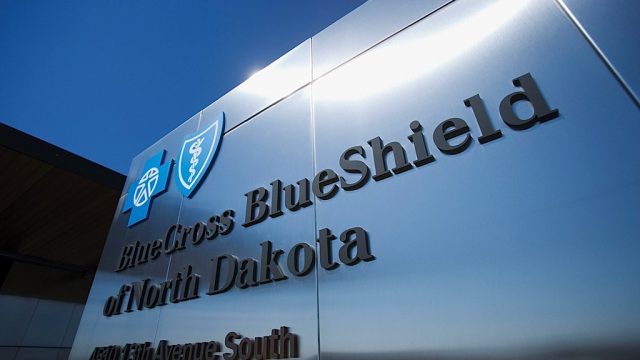Obamacare Has Been Bad For North Dakotans, But Good For Insurance Company Profits

The CEO of Blue Cross Blue Shield of North Dakota – by far the state’s largest health insurer – visited the Fargo Forum editorial board recently to explain that his company is financially strong.
That people go the idea they might not be doing so well, financially, is easy to understand. Not only did the company’s adventure in Maryland in the form of a failed attempt to set up that state’s Obamacare exchange result in a $45 million settlement with the state, but BCBSND also lost the business of the state Public Employees Retirement System.
The company was providing some 66,000 public employees with health insurance, raking in about $320 million per year in revenues, and now all that revenue is going to Sanford which is a relatively new player in the health insurance game.
But BCBSND CEO Tim Huckle told the Forum that things are looking up. “We’re having a strong year in 2015, we had a good year in 2014,” he’s quoted as saying.
That might be because Obamacare has been very, very good for the bottom line of insurance companies. Case in point, from the Forum article:
On the consumer front, premium increases have, on average, been relatively flat for employer groups that do not have coverage through the health exchanges established under the Affordable Care Act, Huckle said.
But premiums for individuals not covered through the exchanges rose an average of 12.5 percent, he said.
Figures for those who get their health insurance coverage through the exchange are not yet available, but “on average” likely will be similar to rate increases outside the exchange, he said.
So, insurance premiums are up, and so are insurance industry profits.
Remember, Obamacare was officially called the Affordable Care Act because it was supposed to make health insurance and health care more affordable. Now accelerate the rate at which it becomes less affordable.
But hey, at least the insurance companies are doing ok.
I have no problems with companies turning big profits when those profits come because a company is offering goods or services people want. But big profits when Americans are required by law to purchase the products/services in question, and only in a heavily regulated environment?
That’s different.




